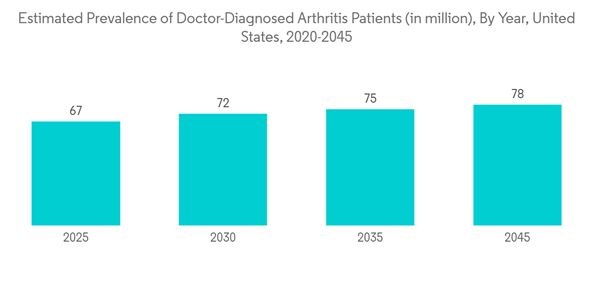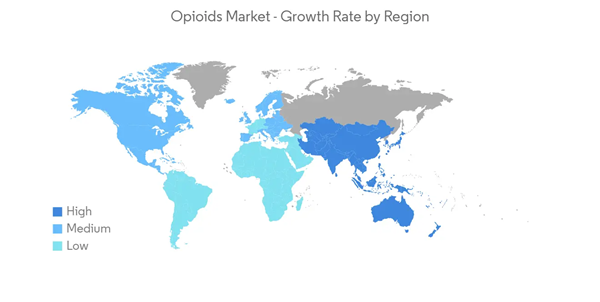Globally, the COVID-19 pandemic showed many negative effects across the medical spectrum, which include a decrease in face-to-face appointments and an increase in telehealth visits. The COVID-19 pandemic also resulted in a period of isolation to maintain sufficient capacity in hospitals and to reduce the spread of the virus. Chronic pain was one of the hardest-hit fields from the COVID-19 pandemic, leaving many patients overburdened with their chronic pain and their ongoing treatment delayed. For instance, according to a research article by Rajendra K Sahoo et a., published in the Indian Journal of Anesthesia 2020, the study results found that 63.16% of pain physicians had a fear of spreading or contracting the disease to patients' family members, 26.79% had impaired sleep, 1.43% physicians were feeling depressed, and 8.14% had feelings of anxiety. Also, opioid use at high doses and for long periods of time can impair immune system function, complicating the course of COVID-19 disease. In various stages of the COVID-19, potential suppression of parts of the immune response may be important in prevention, clinical support, and therapeutic use of medications.
Some of the other major factors driving the market growth include the increasing prevalence of diseases that cause chronic pain, such as cancer, arthritis, lower back pain, fibromyalgia and postsurgical pain, inclination toward extended-release formulations from the immediate release of opioids, and the rising focus on the abuse-deterrent formulation (ADF) by generic manufacturers.
Opioids are considered as most effective drugs for the management of pain. Moreover, their use in the management of chronic pain is considered to be standard practice in most parts of the world. Due to an increase in the burden of medical ailments, the Opioids market is expected to grow over the forecast period.
Furthermore, opioids play a key role in post-operative settings to provide adequate analgesia. As per the Center for Disease Control and Prevention October 2021 estimates, about 1 in 4 United States adults (23.7%) or about 58.5 million people have doctor-diagnosed arthritis and this is expected to reach 78 million by 2045. Opioid therapy is the mainstay of orthopedic treatment of patients with moderate to severe pain, and this helps to drives the overall growth of the market. However, factors such as the advent and legalization of cannabis as an alternative to opioids and prescription drug abuse are expected to impede market growth over the forecast period.
Opioids Market Trends
Strong Agonists are Expected to Hold Significant Market Share in the Receptor Binding Segment
An agonist is a drug molecule that triggers certain receptors in the brain. This agonist produces a significant physiological/pharmacological response when only a relatively small number of receptors are occupied, i.e., the drug has high intrinsic activity. Strong agonist opioids include fentanyl, morphine, dihydromorphinone, meperidine, oxycodone, and oxymorphone.Globally, COVID-19 created a health crisis. During the COVID-19 pandemic, globally, health agencies were engaged in the prevention of infection and providing services to COVID-19 patients, leading to the cancellation of elective surgeries and elective consultations, which showed an effect on pain services by hospitals and pain clinics.
Methadone is a strong agonist that effectively treats addiction to opioid drugs (such as heroin). Strong agonists bind tightly to opioid receptors, which undergo significant conformational changes.
Globally, many people experience pain in their daily lives. For instance, as per the Australian Institute of Health and Welfare (AIHW) 2020 report estimates, chronic pain affects 1 in 5 Australians aged 45 and over.
The market players adopt various strategies such as product approvals and developments to expand their product portfolio, expansions, collaborations, and mergers to increase market share. For instance, In March 2020, Trevena Inc. received the United States Food and Drug Administration (FDA) approval for OLINVYK (oliceridine), an opioid agonist indicated in adults to manage acute pain. Thus, the above-mentioned factors are expected to drive the segment growth in the near future.
North America Dominates the Market and is Expected to Continue to Dominate in the Forecast Period
The major factors driving the market growth in North America include the rising incidence of orthopedic diseases, growing prevalence of chronic diseases, such as cancer and diabetes and rise in disposable income and surge in the geriatric population, and the presence of key market players in the region.In the United States, the COVID-19 pandemic forced healthcare systems to redistribute healthcare resources toward COVID-19 dedicated sites and intensive care units. During the COVID-19 pandemic 2020, chronic pain services that were non-urgent and outpatient and elective interventional procedures were reduced or interrupted during the COVID-19 pandemic to reduce the risk of viral spread.
According to a research article by Filomena Puntillo et al., published in Best Practice and Research: Clinical Anesthesiology Journal 2020, chronic pain populations remain isolated with consequent social and psychological impact. The shutdown of pain services due to the lockdown imposed by the United States government during the COVID-19 pandemic affected chronic pain management.
As per the government of Canada, in 2021, around 7.6 million or one in five people (across the lifespan), live with chronic pain. In Canada, chronic pain had significant impacts on mental and physical health, family and community life, and the economy, with the total direct and indirect cost. Hence, owing to these factors, the studied market is expected to show significant growth over the forecast period.
Opioids Industry Overview
The opioids market is fragmented and competitive. The market consists of several players. However, with the rising usage of opioids in medicines, more companies are trying to enter this market, especially in emerging markets. However, strict laws and stringent regulatory policies are deterring market penetration by small- and mid-sized companies. Some of the market players include Teva Pharmaceuticals Inc., Mallinckrodt Pharmaceuticals, Amneal Pharmaceuticals Inc., Hikma Pharmaceuticals PLC, and Purdue Pharmaceuticals L.P.Additional Benefits:
- The market estimate (ME) sheet in Excel format
- 3 months of analyst support
This product will be delivered within 2 business days.
Table of Contents
Companies Mentioned (Partial List)
A selection of companies mentioned in this report includes, but is not limited to:
- Mallinckrodt Pharmaceuticals LLC
- Purdue Pharmaceuticals L.P.
- Sun Pharmaceutical Industries Ltd
- Teva Pharmaceuticals Inc.
- Vertice Pharma LLC
- Johnson and Johnson
- AbbVie Inc (Allergan PLC)
- Hikma Pharmaceuticals PLC
- Endo Pharmaceuticals Inc.
- Zyla Life Sciences (Egalet Corporation)
- Amneal Pharmaceuticals Inc.
- Pfizer Inc.
- AcelRx Pharmaceuticals Inc
- Alcaliber SA










